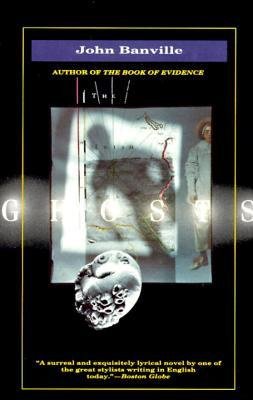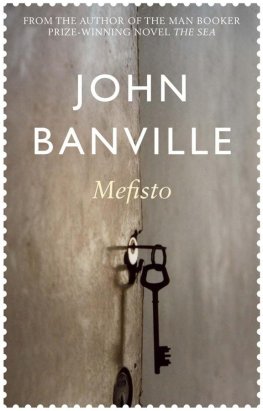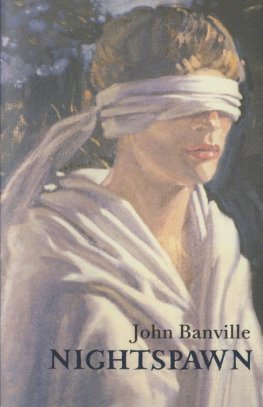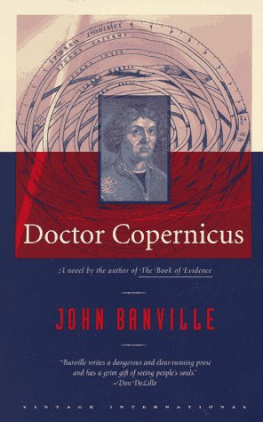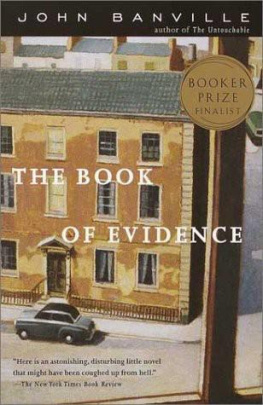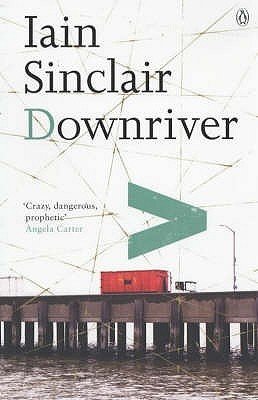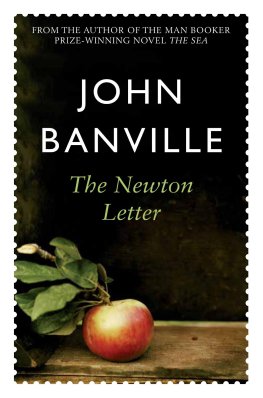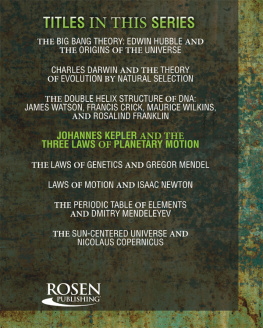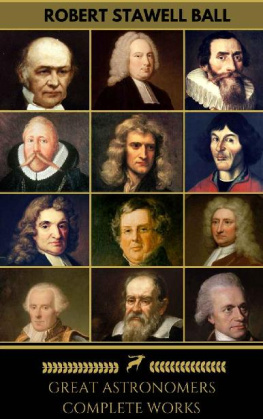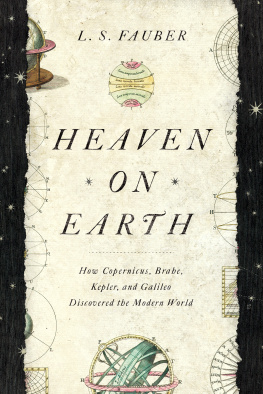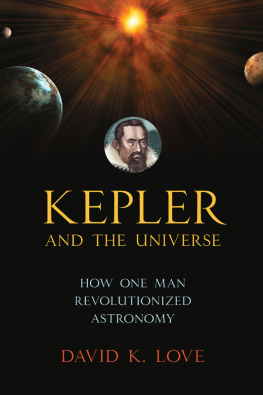John Banville - Kepler
Here you can read online John Banville - Kepler full text of the book (entire story) in english for free. Download pdf and epub, get meaning, cover and reviews about this ebook. year: 1993, publisher: Vintage, genre: Detective and thriller. Description of the work, (preface) as well as reviews are available. Best literature library LitArk.com created for fans of good reading and offers a wide selection of genres:
Romance novel
Science fiction
Adventure
Detective
Science
History
Home and family
Prose
Art
Politics
Computer
Non-fiction
Religion
Business
Children
Humor
Choose a favorite category and find really read worthwhile books. Enjoy immersion in the world of imagination, feel the emotions of the characters or learn something new for yourself, make an fascinating discovery.

- Book:Kepler
- Author:
- Publisher:Vintage
- Genre:
- Year:1993
- Rating:4 / 5
- Favourites:Add to favourites
- Your mark:
- 80
- 1
- 2
- 3
- 4
- 5
Kepler: summary, description and annotation
We offer to read an annotation, description, summary or preface (depends on what the author of the book "Kepler" wrote himself). If you haven't found the necessary information about the book — write in the comments, we will try to find it.
Kepler — read online for free the complete book (whole text) full work
Below is the text of the book, divided by pages. System saving the place of the last page read, allows you to conveniently read the book "Kepler" online for free, without having to search again every time where you left off. Put a bookmark, and you can go to the page where you finished reading at any time.
Font size:
Interval:
Bookmark:
In a brilliant illumination of the Renaissance mind, acclaimed Irish novelist John Banville re-creates the life of Johannes Kepler and his incredible drive to chart the orbits of the planets and the geometry of the universe. Wars, witchcraft, and disease rage throughout Europe. For this court mathematician, vexed by domestic strife, appalled by the religious upheavals that have driven him from exile to exile, and vulnerable to the whims of his eccentric patrons, astronomy is a quest for some form of divine order. For all the mathematical precision of his exploration, though, it is a seemingly elusive quest until he makes one glorious and profound discovery.
Johannes Kepler, born in 1571 in south Germany, was one of the world's greatest mathematicians and astronomers. The author of this book uses this history as a background to his novel, writing a work of historical fiction that is rooted in poverty, squalor and the tyrannical power of emperors.
Document ID: fbd-8ebe34-9bc1-f24b-1794-e72d-2bda-75ad96
Document version: 1
Document creation date: 18.09.2008
Created using: Fiction Book Designer software
The standard biographies are Kepler, by Max Caspar, translated and edited by C. Doris Hellman (London, 1959), and Tycho Brake, by J.L.E. Dreyer (Edinburgh, 1890). I must also mention, once again, my indebtedness to, and admiration for, Arthur Koestler's The Sleepwalkers (London, 1959). Another work which provided me also with valuable insights into early 17th-century life and thought is The Rosicrucian Enlightenment, by Frances A. Yates (London, 1972).
For their help and encouragement, I wish to thank especially Don Sherman and Ruth Dunham, and my wife, Janet.
Johannes Kepler died in Regensburg on November the 15th, 1630.

Revolutions Trilogy, Book 2
Preise dem Engel die Welt
R.M. Rilke Duino Elegies
Johannes Kepler, asleep in his ruff, has dreamed the solution to the cosmic mystery. He holds it cupped in his mind as in his hands he would a precious something of unearthly frailty and splendour. Do not wake! But he will. Mistress Barbara, with a grain of grim satisfaction, shook him by his ill-shod foot, and at once the fabulous egg burst, leaving only a bit of glair and a few coordinates of broken shell.
And 0.00429.
He was cramped and cold, with a vile gum of sleep in his mouth. Opening an eye he spied his wife reaching for his dangling foot again, and dealt her a tiny kick to the knuckles. She looked at him, and under that fat flushed look he winced and made elaborate business with the brim of his borrowed hat. The child Regina, his stepdaughter, primly perched beside her mother, took in this little skirmish with her accustomed mild gaze. Young Tyge Brahe appeared then, leaning down from on high into the carriage window, a pale moist melanochroid, lean of limb, limp of paw, with a sly eye.
"We are arrived, sir," he said, smirking. That sir. Kepler, wiping his mouth discreetly on his sleeve, alighted on quaking legs from the carriage.
"Ah."
The castle of Benatek confronted him, grand and impassive in the sunlit February air, more vast even than the black bulk of woe that had lowered over him all the way from Graz. A bubble of gloom rose and broke in the mud of his fuddled wits.
Mstlin, even Mstlin had failed him: why expect more of Tycho the Dane? His vision swam as the tears welled. He was not yet thirty; he felt far older than that. But then, knuckling his eyes, he turned in time to witness the Junker Tengnagel, caparisoned blond brute, fall arse over tip off his rearing horse into the rutted slush of the road, and he marvelled again at the inexhaustible bounty of the world, that has always a little consolation to offer.
It was a further comfort that the grand serenity of Benatek was no more than a stony exterior: inside the gates, that gave into a cobbled courtyard, the quintet of travellers arrived in the midst of bedlam. Planks clattered, bricks crashed, masons whistled. An overburdened pack mule, ears back and muzzle turned inside out, brayed and brayed. Tyge waved a hand and said: "The new Uraniborg! "and laughed, and, as they stooped under a sagging granite lintel, a surge of excitement, tinged with the aftertaste of his dream, rose like warm gorge in Kepler's throat. Perhaps after all he had done right in coming to Bohemia? He might do great work here, at Brahe's castle, swaddled in the folds of a personality larger far and madder than his own.
They entered a second, smaller courtyard. There were no workings here. Patches of rust-stained snow clung in crevices and on window ledges. A beam of sunlight leaned against a tawny wall. All was calm, or was until, like a thing dropped into a still pool, a figure appeared from under the shadow of an arch, a dwarf it was, with enormous hands and head and little legs and a humped back. He smiled, essaying a curtsy as they went past. Frau Barbara took Regina 's hand.
"God save you, gentles," the dwarf piped, in his miniature voice, and was ignored.
Through a studded door they entered a hall with an open fire. Figures moved to and fro in the reddish gloom. Kepler hung back, his wife behind him panting softly in his ear. They peered. Could it be they had been led into the servants' quarters? At a table by the fire sat a swarth man with a moustache, hugely eating. Kepler's heart thumped. He had heard tell of Tycho Brahe's eccentricities, and doubtless it was one of them to dine down here, and doubtless this was he, the great man at last. It was not. The fellow looked up and said to Tycho's son: "Eh! you are returned." He was Italian. "How are things in Prague?"
"Chapped," young Tyge said, shrugging, "chapped, I would think."
The Italian frowned, and then: "Ah, I have you, I have you. Ha."
Kepler began to fidget. Surely there should have been some better reception than this. Was he being deliberately slighted, or was it just the way of aristocrats? And should he assert his presence? That might be a gross failure of tact. But Barbara would begin to nag him in a moment. Then something brushed against him and he twitched in fright. The dwarf had come quietly in, and planted himself now before the astronomer and examined with calm attention the troubled white face and myopic gaze, the frayed breeches, crumpled ruff, the hands clutching the plumed hat. "Sir Mathematicus, I venture," and bowed. "Welcome, welcome indeed, " as if he were lord of the house.
"This," said young Brahe, "is Jeppe, my father's fool. It is a manner of sacred beast, I warn you, and can foretell the future."
The dwarf smiled, shaking his great smooth head. "Tut, master, I am but a poor maimed man, a nothing. But you are tardy. This long week past we have looked for you and your" darting a glance at Kepler's wife "baggage. Your dad is fretting."
Tyge frowned. "Remember, you," he said, "shit-eating toad, one day I will inherit you. "
Jeppe glanced after Tengnagel, who had strode straight, glowering, to the fire. "What ails our broody friend?"
"A fall from his mount," Tyge said, and suddenly giggled.
"Yes? The trollops were so lively then, in town?"
Mistress Barbara bridled. Such talk, and in the child's hearing! She had been for some time silently totting up against Benatek a score of particulars that totalled now a general affront. "Johannes," she began, three semitones in ominous ascent, but just then the Italian rose and tapped a finger lightly on young Tyge's breastbone. "Tell him," he said, "your father, I regret this thing. He's angry still, and will not see me, and I can wait no more. It was no fault of mine: the beast was drunk! So you tell him, yes? Now farewell. " He went quickly out, flinging the wing of his heavy cloak across his shoulder and clamping his hat on his head. Kepler looked after him.
Font size:
Interval:
Bookmark:
Similar books «Kepler»
Look at similar books to Kepler. We have selected literature similar in name and meaning in the hope of providing readers with more options to find new, interesting, not yet read works.
Discussion, reviews of the book Kepler and just readers' own opinions. Leave your comments, write what you think about the work, its meaning or the main characters. Specify what exactly you liked and what you didn't like, and why you think so.

